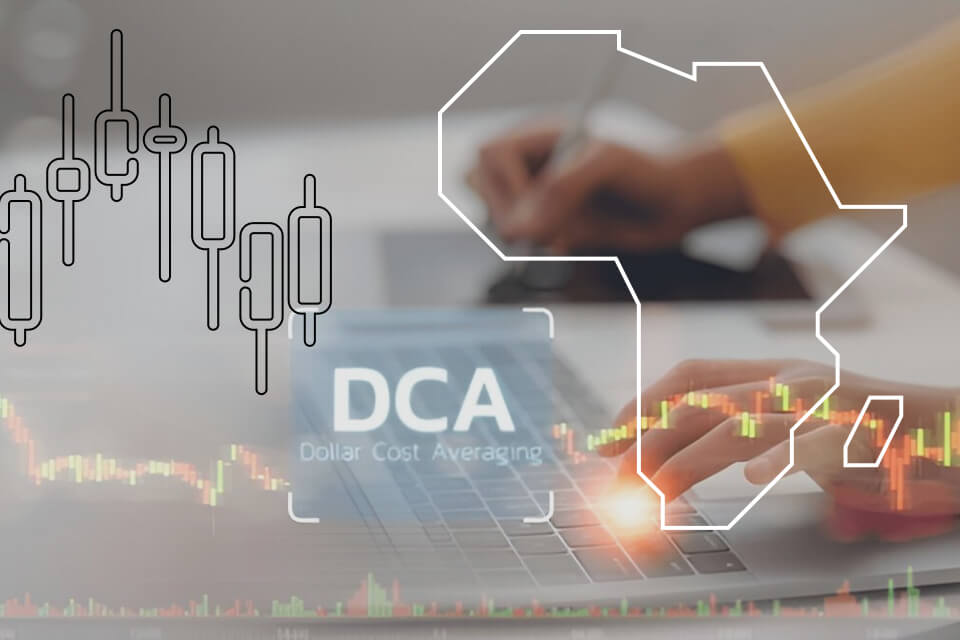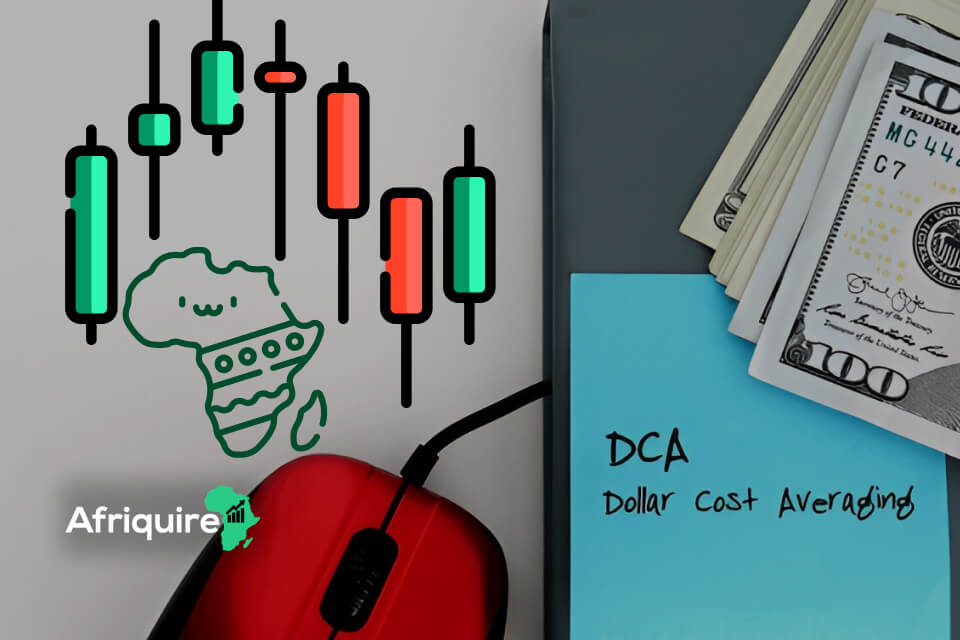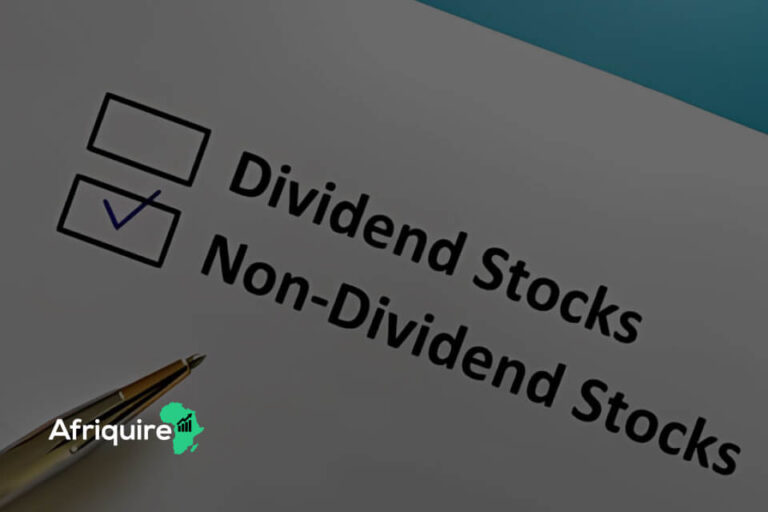Introduction
Learning how to use dollar-cost averaging in African markets is an important step for anyone who wants to build smart long-term investments, even if you are starting small. Many young African investors often wonder when is the best time to start investing. Is it when prices are high, low, or somewhere in between? But the truth is, nobody, no matter how experienced, can always predict what the market will do next. Dollar-cost averaging gives you a simple solution that reduces stress and risk. Instead of guessing the right time to invest, you simply put in a fixed amount of money regularly, no matter what is happening in the market.
This strategy is especially useful in African markets, where currencies and stock prices can rise today and fall tomorrow. By using dollar-cost averaging, you can smooth out these ups and downs. This helps you grow your investments slowly while avoiding the pressure of timing the market. Whether you are saving for the future, buying stocks, or investing in mutual funds, learning how to use dollar-cost averaging can make investing easier and more consistent.
As you read on, you will discover simple tips on how to apply this method and why it can be a powerful tool for African investors. With the right mindset and a steady plan, you can build a strong future without worrying about missing out on “the perfect time.”
Understanding Dollar – Cost Averaging (DCA)
Dollar-cost averaging (DCA) is an investing strategy where you put the same amount of money into your investment at regular times, like every month, no matter what the market price is. For example, you might decide to invest ₦10,000 or $50 on the first day of every month — whether prices are high or low. The main idea is to stop worrying about the “perfect” time to invest, because even experts get that wrong.
When you use DCA, you buy more shares when prices are low and fewer shares when prices are high. Over time, this helps you balance out the cost of your investments. Sometimes the market goes up, and sometimes it goes down, but by staying consistent, you reduce the risk of putting all your money in at a bad time.
In African markets, where prices can change quickly, this method helps you remain calm and focused. It also turns investing into a habit, since you invest regularly without letting emotions control you. Many people use Dollar-Cost Averaging to invest in stocks, mutual funds, or exchange-traded funds (ETFs).
Basically, learning how to use dollar-cost averaging can help you stay disciplined and protect your money from market swings. It is a simple and steady way to reach your financial goals, even in Africa’s unpredictable markets
Why Dollar-Cost Averaging Matters in African Markets
Learning how to use dollar-cost averaging (DCA) in African markets is one of the smartest steps you can take if you want to build wealth steadily. African economies can be full of surprises — one day, prices are up, and the next, they fall sharply. Dollar-Cost Average is a simple and smart way to invest without letting these ups and downs confuse you. More Africans are now using this approach as they search for ways to grow their money safely and avoid panic when the market changes suddenly.
Volatility in Emerging Economies
African markets have great potential, but they also face strong price swings. These changes often come from political news, inflation, currency devaluation, or global shocks. For instance, stock prices in Nigeria or South Africa can rise one month and fall the next. Many people try to “time the market”, that is, wait for the perfect moment to buy, but even professionals often get it wrong.
Here is where DCA helps. When you invest a fixed amount every month or week, you buy more shares when prices are low and fewer when prices are high. Over time, this lowers your average cost per share. Instead of putting all your money at once and hoping for the best, DCA allows you to spread your risk over time. It also keeps your emotions under control, so you don’t stop investing just because the market looks scary. This calm, steady habit can make a huge difference in the long run.
Reducing Timing Risk for Investors
One of the biggest problems in investing is timing risk, i.e., the fear of entering the market at the wrong time. In African countries, where prices can change suddenly due to elections or global events, this risk is even higher. With DCA, you don’t need to guess when to invest. You simply invest regularly, maybe every payday or every month.
Over time, this helps you buy shares at different prices and reduces the effect of bad timing. For beginners or people with limited income, this is especially helpful. You don’t need to have a huge amount of money before you start. By investing small amounts consistently, you can slowly grow your portfolio. Whether prices are high or low, you are always moving forward, and that’s how wealth grows.
Building Long – Term Investment Discipline
DCA teaches discipline, which is just as valuable as investing. It pushes you to stay committed and follow your plan no matter what happens in the market. In Africa, where things can change quickly, this steady routine is a great advantage. It helps you stay focused on your goals and not get distracted by short-term market noise.
Many Africans already practise DCA without knowing it. Pension schemes, automated savings plans, or workplace investment programmes often use the same idea. In South Africa, for instance, investors call it rand-cost averaging, but it works the same way. Some people even join local savings groups or cooperatives to contribute money regularly and invest together.
When you stay disciplined with DCA, you stop reacting emotionally to market changes. Instead of panicking when prices fall, you see it as a chance to buy more at a lower price. Over time, this mindset helps you grow stronger as an investor. Also, if you plan to move into venture capital or business investing later, Dollar-Cost Average helps you understand how steady, patient investing works — a skill that can guide you in bigger deals.

How to Set Up Recurring Investments
Knowing how to use dollar-cost averaging in African markets means choosing one of the smartest and most stress-free ways to invest for your future. The real secret is to start with recurring investments on a platform that works in your country, choose a schedule that matches your income, and pick assets that you understand. Let’s walk through the steps together in a simple way.
Choosing the Right Platform or Broker
Setting up dollar-cost averaging begins with choosing a trustworthy platform or broker that allows you to automate your investments easily.
Local Investment Apps and Digital Platforms
Many African countries now have local investment apps and websites, such as Daba, Ladda, Bamboo, and Chaka. These platforms allow you to invest small amounts regularly in stocks, ETFs, and even bonds. They are simple to use, require little money to start, and make it easy to automate your investments.
For example, Daba has a recurring investment feature that lets you invest a fixed amount each month in top West African stocks. Ladda and Chaka also allow you to set up automatic monthly contributions directly from your bank account. This means you don’t need to remember every time—it just happens automatically!
International Brokers with African Access
If you want more choices, you can also use international brokers like eToro and Interactive Brokers. These platforms are open to African investors, although you may need to pass some identity checks and use a Visa or MasterCard for payments. They also allow you to buy fractional shares, which means you can invest even with small amounts. With them, you can invest in global stocks, ETFs, and sometimes cryptocurrencies on a regular schedule.
Deciding the Frequency of Contributions
Dollar-cost averaging is flexible because you decide how often you invest.
Weekly, Bi – Weekly, or Monthly Options
Most investors prefer monthly contributions, usually right after payday. However, if your platform supports it, you can invest weekly or every two weeks. The choice depends on how often you receive money and how comfortable you are. While frequent investments help smooth out price changes, be careful if your app charges a fee each time you invest. Too many small transactions can reduce your profits.
Aligning Contributions with Income Flow
Pick a schedule that fits your income pattern. For example, if your salary comes at the end of each month, you can set your investment to happen the next day. Some apps allow you to automate this directly, or you can create a standing order with your bank. The most important thing is to stay consistent. You don’t need to worry about finding the perfect day to invest.
Selecting Assets for Dollar-Cost Averaging in Africa
Once your platform and schedule are ready, the next step is to decide what to invest in. Let’s explore your main options.
Stocks Listed on African Exchanges
African stock exchanges such as the Nigerian Exchange (NGX), BRVM, Nairobi Securities Exchange (NSE), and Johannesburg Stock Exchange (JSE) have many strong companies. With dollar-cost averaging, you can slowly buy shares in banks, telecoms, and consumer brands over time—without stressing about daily price changes. Platforms like Daba make it easy to access these stocks with small amounts of money.
Exchange – Traded Funds (ETFs)
ETFs are funds that hold many companies inside one investment. You can buy and sell them like normal stocks. Some ETFs in Africa track local or regional markets, while others follow global trends. By using dollar-cost averaging, you can reduce risk and lower your average buying price over time, even when the market moves up and down.
Government Bonds and Treasury Bills
You don’t have to invest only in stocks. Government bonds and treasury bills are safer options that pay fixed returns. Many African countries allow you to buy them online or through banks. Even though their profits are smaller, investing regularly in them can help you grow your savings steadily and protect your money from market ups and downs.
Cryptocurrencies and Alternative Assets
Some people now use dollar-cost averaging to invest in cryptocurrencies like Bitcoin and Ethereum. These assets are riskier because their prices can change quickly, but investing small amounts regularly helps reduce that risk. Always use trusted platforms and only invest money you can afford to lose.
Practical Benefits of Dollar-Cost Averaging
Dollar-cost averaging (DCA) in African markets is one of the smartest ways for beginners and even experienced investors to manage risk and grow wealth steadily. Many Africans find this method helpful, especially when the markets are unpredictable or move up and down quickly.
Reducing Emotional Investment Decisions
Emotions can easily make people make poor financial decisions. For example, when stock prices are high, you may feel excited and buy more. But when prices fall, you might panic and sell everything. This behaviour often leads to losses or missing out on growth. Dollar-cost averaging helps you avoid that. By investing the same amount regularly, you don’t have to think too much about whether now is the right time to invest. The process becomes automatic, which means you can focus less on short-term changes and more on your long-term goals. Over time, you will develop discipline, worry less, and allow your money to grow with fewer emotional ups and downs.
Spreading Out Market Entry Points
Trying to guess the perfect time to invest is almost impossible, even for experts. With dollar-cost averaging, you spread your investment across different times. For instance, you can invest a fixed amount every month into a Nigerian or Kenyan stock. Sometimes you’ll buy more shares when prices are low, and sometimes fewer shares when prices are high. This balances your overall cost per share and reduces the risk of bad timing. In African markets, where prices can change sharply due to politics or economic news, this method helps protect your money. It also keeps you consistent because you invest whether the market is up or down. This steadiness helps you stay focused instead of reacting out of fear or excitement.
Supporting Consistent Wealth Growth
One of the best benefits of dollar-cost averaging is that it supports steady wealth growth. Regular investing helps you build a saving culture, and over time, those small investments can grow into something big. Even if the market sometimes falls, your habit of investing regularly gives you more chances to benefit when it rises again. Many African investors use this approach with mutual funds, index funds, or ETFs, which are available on several platforms and bank apps. It is also easy to automate, so you don’t forget to invest. As you continue, you’ll see how powerful time and consistency can be in building wealth.

Challenges to Consider
There is no doubt that using dollar-cost averaging (DCA) is a smart and simple way to invest, especially if you don’t want to stress about timing the market. However, when applying this method in African markets, there are some challenges you should understand. These issues can affect how well DCA works and might reduce your overall returns if not handled wisely.
Transaction Costs and Fees
First of all, transaction costs and fees are often higher in many African markets compared to larger global ones. Every time you buy a small portion of an investment, you pay a charge, like a commission or service fee. Because DCA involves buying regularly, these small fees can quickly add up and reduce your profits. For example, if you buy shares every month, the repeated charges may cut into your gains. Therefore, it’s important to look for brokers or investment platforms that have low transaction costs or even offer discounted packages for frequent investors. By doing this, you can keep more of your money working for you.
Currency Fluctuations in African Markets
Next, one major challenge in African investing is currency fluctuation. The value of many African currencies can change quickly compared to stronger ones like the US dollar or the euro. This means even if you buy at a good price in naira, cedi, or shilling, the return might drop when the currency weakens. DCA helps reduce timing risk, but it cannot remove currency risk. For instance, if your local currency falls, your investment value in international terms might decrease. To manage this, investors can diversify across different currencies or use hedging options if available. This way, you balance the effect of exchange rate changes on your returns.
Limited Access to Diversified Products
Another big challenge is that there are fewer diversified investment products in many African markets. In developed markets like the US or UK, investors can easily buy ETFs, mutual funds, and bonds that cover different industries and countries. But in most African countries, options are limited, and this makes it harder to spread your risk. DCA works best when you can invest in many different assets. With fewer choices, you might have to put your money into riskier or less diversified options, which can affect your long-term performance. Still, you can explore regional investment platforms or cross-border funds that allow wider diversification.
Despite these challenges, dollar-cost averaging can still be very useful if you understand your environment and plan well. By managing your costs, being aware of currency risks, and seeking better access to diversified investments, you can still grow your wealth steadily.

Frequently Asked Questions (FAQs)
1. What is dollar cost averaging (DCA)?
DCA is an investment strategy where you invest a fixed amount regularly over time, buying more shares when prices are low and fewer when prices are high.
2. Can DCA guarantee profits?
No, DCA lowers risk but does not guarantee profits or protect against losses.
3. Is DCA suitable for beginners?
Yes, it’s simple and helps investors avoid the stress of trying to time the market perfectly.
4. Does DCA work with all types of investments?
It works best with stocks, mutual funds, or ETFs where prices change often.
5. Can I use DCA with limited funds?
Absolutely. DCA allows you to start investing even with small amounts over time.
Conclusion
Understanding how to use dollar cost averaging is a smart way for investors in African markets to build wealth steadily and reduce risks. By investing fixed amounts at regular intervals, DCA helps you avoid the stress of trying to guess the perfect time to buy assets, a challenge many face in volatile markets. This strategy supports patient, long-term investing and can lower the average price you pay for investments over time.
Remember, while DCA reduces risk, it does not guarantee profits or protect against losses, so always consider your financial goals and risks. The impact of dollar cost averaging is especially useful for new investors and those who want to grow their money gradually without large risks. By learning how to use dollar cost averaging, you can better navigate the ups and downs of African markets and invest wisely.



